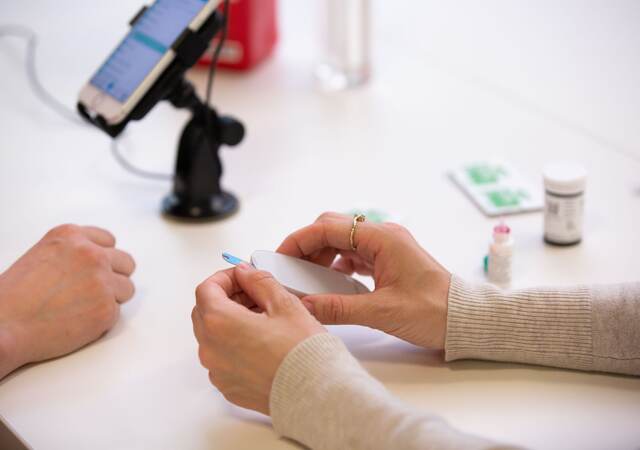June 7, 2021
For the marketing of in vitro diagnostic (IVD) medical devices manufacturers need to demonstrate that their products perform as claimed, which typically requires performance data obtained from appropriate studies or from available state-of-the-art literature. These performance evaluation (PE) studies may be studies with leftover or archived samples, or be studies which can pose a risk to the participants, e.g., when sampling is primarily done for the purpose of the study.
Requirements for IVD performance evaluation studies: Current or Past?
Information on specific requirements for IVD performance evaluations, including PE studies, were quite limited in previous European Union guidance documents and standards:
For example, Directive 98/79/EC of the European Parliament and of the Council of 27 October 1998 on in vitro diagnostic medical devices (IVDD) does not include a definition for PE studies. These studies are, however, indirectly addressed by the definition given for devices for performance evaluation, which indicates that PE studies include “studies in laboratories or medical analyses or studies in other appropriate environments outside the own premises of the IVD medical device manufacturer.” That’s why these PE studies often are called “external” PE studies.
Standard EN 13612 on “Performance evaluation of in vitro diagnostic medical devices” published in October 2002 provided further guidance on these “external PE” studies. This standard also refers to the IVDD, which requires “that the manufacturer provides evidence in his technical documentation that the IVD medical device performs as claimed, whether these claims are of a technical, analytical or diagnostic nature. Such evidence can be shown by data already available to the manufacturer or by scientific literature or by data originating from performance evaluation studies in a clinical or other appropriate environment in accordance with the intended use.”
EN 13612 further provides preconditions such as final design validation that need to be fulfilled prior to conducting a PE study, and also includes definitions and terms applicable for PE studies. The standard requires the establishment of certain roles and functions such as coordinator of PE studies and investigator, as well as the generation of PE-specific documents such as evaluation plans and evaluation reports. While EN 13612 describes many of the PE study elements, specific study planning and conduct was left up to the manufacturer, as these efforts depend on the level of complexity of the IVD and the design of the intended PE study.
ISO 14155 “Clinical investigation of medical devices for human subjects - Good clinical practice (GCP)” was published in 2003 and first updated in 2011. This standard provides general guidance on the conduct of clinical investigations with medical devices on human subjects. Even though ISO 14155 excludes IVD devices from its scope, it was common understanding that next to compliance to EN 13612, compliance to ISO 14155 needed to be considered for clinical PE studies that posed risks to subjects, be it due to methods of sample taking or if the outcome of the IVD assessment did affect the treatment of the subject.
In addition, requirements for the conduct of clinical investigations and PE studies were introduced over time into national country legislations in many EU member states.
What has changed from IVDD to IVDR?
In May 2017 Regulation (EU) 2017/746 of the European Parliament and of the Council of 5 April 2017 on in vitro diagnostic medical devices (IVDR) was adopted, which will replace the IVDD on May 26, 2022. The IVDR referred in recital 66 to ISO 14155, and by that underlined the expectation that compliance to ISO 14155 should be considered for clinical performance studies (known as PE studies). Clinical evidence, performance evaluation and performance studies are further addressed in this Regulation in Chapter VI Articles 57 to 77, Annex XIII and Annex XIV.
To provide further guidance on GCP for IVDs, a new standard, ISO 20916 on “In vitro diagnostic medical devices — Clinical performance studies using specimens from human subjects — Good study practice”, was published in 2019 and the IVDR was updated with its first corrigendum to cite ISO 20916 instead of ISO 14155. Recital (66) states now:
“The rules on performance studies should be in line with well-established international guidance in this field, such as the international standard ISO 20916 on clinical performance studies using specimens from human subjects, currently under development, …”
Conclusion
General requirements for PE studies under the EU IVDD have been in place since 2002 through the EN 13612 and ISO 14155 standards, and through national EU country legislation, but this mixture of regulations often might not have been adequately identified or considered by manufacturers when designing, planning and performing their studies.
With the establishment of ISO 20916 and the IVDR, clear definitions of different types of clinical performance studies as well as roles and responsibilities of all involved parties (e.g. sponsor, study site, ethical committees, etc.) are introduced. In addition, guidance for the compliant conduct of respective clinical performance studies is provided. This allows manufacturers to plan more efficiently the compliant conduct of respective clinical performance studies.
Even though the IVDR will only come into force in May 2022, it is our understanding, that all IVD manufacturers conducting clinical performance studies should consider ISO 20916 requirements for their study design and conduct. Following this standard is “voluntary,” but there is a significant risk that clinical performance data obtained in recent years without respecting ISO 20916 (or EN 13612) might not be accepted by the Notified Bodies (NB) to adequately support the clinical performance requirements under IVDD and IVDR. The expected “up-classification” of many IVDs under the IVDR and the associated NB involvement could result in CE certificates not being granted, or CE certificates even being suspended, if clinical performance data were not obtained in compliance with the respective clinical performance requirements.
Our next IVD blog will focus on the content of ISO 20916 addressing GCP requirements for IVD clinical performance studies.
Dietmar Falke is Head of Clinical Research and Oliver Eikenberg is Senior Consultant RA/QA at Emergo by UL.
Additional European IVD regulatory resources from Emergo by UL
- EU IVDR compliance preparation and resource center
- European Authorized Representative for clinical trials in-country representation
Request more information from our specialist
Thanks for your interest in our products and services. Let's collect some information so we can connect you with the right person.






